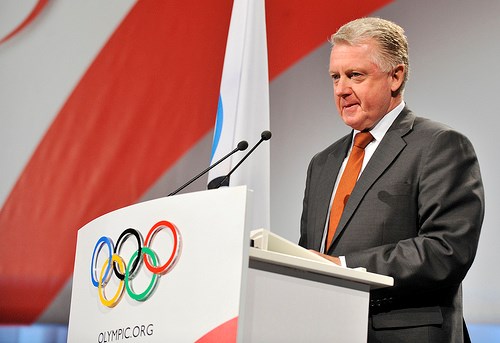Improvements and some lessons learned after the Beijing Games
“The Beijing Olympic Games were an unquestionable success,” says Mr. Verbrüggen when introducing the key factors for success of the Games as well as some lessons learnt and recommendations.
“Awarding the Games to China has proven to be the right choice.”
Verbrüggen concluded that hosting the Games has proven to be a positive catalyst for change in China. Still he stresses that legacies do not happen by themselves, and therefore the IOC will need to remain proactive and continue to work side-by-side with China.
Positive legacies for the Olympic movement count, says Verbrüggen, issues of cultural openness, less of a western approach as well as a record number of participants.
Still, Verbrüggen pleaded for what he called “context awareness”, namely that one should not expect to change China through the Games.
Of the positive changes, Beijing underwent in connection to the Games, Verbrüggen stressed that it was the peoples’ games and that the Games succeeded in building bridges on a cultural level. Environmental improvements were acknowledged as well as the efforts in planning, construction and management of venues on behalf of BOCOG and Beijing Municipal Authorities.
“Staging an event as complex as the Olympic Games there are always going to be challenges,” says Verbrüggen.
Points which Verbrüggen underlined had room for improvement were: organizational complexity, that more people should have been allowed at the Olympic Green, problems with ticketing so that some venues were empty although tickets were supposedly sold-out, inconsistencies on the quality of sports presentations, and that decision process at venue level were “long and tedious”.
Verbrüggen also spoke of the image and reputation of the Olympic movement being tainted as an effect of the protests during the international torch relay in which, with Verbrüggen’s words, “misuse of the Games´ symbols” took place.
Addressing the question of promoting and protecting the Olympic brand, Verbrüggen talked about how it had been “tainted by wrongly targeted demonstrations,” such as the incidents during the torch relay.
“It painfully reminded us how our value and image are exposed.”
In regards of human rights issues, Verbrüggen stated: “We must remain realistic. Our influence lies in the area of sport.”
According to Verbrüggen, the Olympic organization has to deal with setting public expectations. His suggestion was to assess risks more carefully and at an earlier stage.






